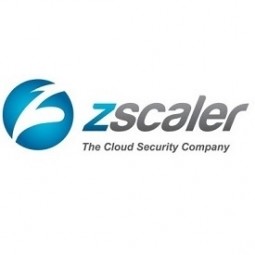Download PDF
Enhancing Mobile Security and Productivity with Zscaler: A Case Study of SANTALUCÍA
Technology Category
- Cybersecurity & Privacy - Cloud Security
- Networks & Connectivity - Cellular
Applicable Industries
- National Security & Defense
- Telecommunications
Use Cases
- Tamper Detection
- Transportation Simulation
Services
- Cloud Planning, Design & Implementation Services
The Challenge
SANTALUCÍA, a leading insurance company, was facing a significant challenge in enhancing employee productivity through mobile support while maintaining robust security. The company was struggling with two main issues: the inability to secure user browsing from mobile phones and the inability to control data usage over cellular networks. The company had implemented a Mobile Device Management (MDM) solution, but it did not provide control over traffic or data consumption. To promote secure mobility, the company tried implementing VPN connections from all mobile devices to the corporate network. However, this approach increased latency for users, required significant administration and end-user support, and generated an overwhelming increase in traffic that the existing infrastructure could not handle. Furthermore, it did not provide the granular control over user profiles, application types, and content categories that the company desired.
About The Customer
SANTALUCÍA S.A. Compañía de Seguros y Reaseguros is a well-established insurance company founded in 1922. The company specializes in family risk coverage and operates nearly 400 locations with more than 17,000 agents. SANTALUCÍA offers quality-of-life insurance to nearly 7 million customers. The company is committed to providing rapid and efficient service, and this commitment necessitated a new approach to mobile security to meet employee productivity goals while maintaining robust security. The company had previously implemented a Mobile Device Management (MDM) solution, but it did not provide the necessary control over traffic or data consumption.
The Solution
SANTALUCÍA turned to Zscaler, a cloud-based security platform, to address its mobile security and productivity challenges. The company was already familiar with Zscaler's solution for desktop and notebook computers and decided to implement its mobile security solution, the Zscaler Secure Agent. The deployment was straightforward as the solution was fully integrated with SANTALUCÍA's existing MDM solution, facilitating automation and transparency. Zscaler's solution allowed mobile data traffic to route securely and directly to the Internet, significantly reducing the traffic load on SANTALUCÍA's infrastructure and reducing expenses on mobile data bandwidth and VPN licenses. The solution also provided control over which browsing and mobile applications could be used when connected to a cellular data network or when roaming. The elimination of traffic to and from the data center, along with improved processing time with Zscaler's cloud security infrastructure, reduced latency for users, enhancing the mobile computing experience and reinforcing productivity objectives.
Operational Impact
Quantitative Benefit
Related Case Studies.

Case Study
Vodafone Hosted On AWS
Vodafone found that traffic for the applications peak during the four-month period when the international cricket season is at its height in Australia. During the 2011/2012 cricket season, 700,000 consumers downloaded the Cricket Live Australia application. Vodafone needed to be able to meet customer demand, but didn’t want to invest in additional resources that would be underutilized during cricket’s off-season.

Case Study
SKT, Construction of Smart Office Environment
SK T-Tower is the headquarters of SK Telecom. Inside the building, different types of mobile devices, such as laptops, smartphones and tablets, are in use, and with the increase in WLAN traffic and the use of quality multimedia data, the volume of wireless data sees an explosive growth. Users want limitless Internet access in various places in addition to designated areas.

Case Study
Data Capture for Afghanistan Forces
Electronic equipments on the field of Afghanistan provided information on the status of the vehicle and to identify potential threats surrounding it to the British Force. The monitoring and interpretation of this data requires robust and sophisticated digitization for data capture and communication.








